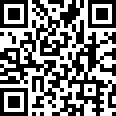
Privacy statement: Your privacy is very important to Us. Our company promises not to disclose your personal information to any external company with out your explicit permission.
2022-09-17
Beginning in the 1990s, the additive Brominated Flame Retardant HBCD has gradually been used in building insulation materials throughout the world, and its usage has gradually increased. However, international studies have found that HBCD itself is toxic and has the potential for long-distance environmental migration, which can affect the regional and global environment through air, water or migratory species.
The "Stockholm Convention on Persistent Organic Pollutants" is the third international convention with mandatory requirements adopted by human society to protect the global environment after the "Convention for the Protection of the Ozone Layer" and the "Framework Convention on Climate Change." China joined the Convention in 2001 and, as the first signatory, has taken vigorous actions to protect human health and the environment from persistent organic pollutants (POPs).
In May 2013, the parties agreed to list HBCD as a newly listed POPs in Annex A of the Stockholm Convention on Persistent Organic Pollutants and take actions to ban or eliminate them globally. From December 26, 2016, China banned the production, use, import and export of HBCD. Among them, HBCD used for building insulation materials EPS (expanded polystyrene) and XPS (extruded styrene) has a 5-year exemption period, which will end on December 25, 2021.
Novista Group supplies SR130 (replace HBCD), Emerald3000 (replace HBCD), DBDPE, BDDP, FR245, TTBP to global market.
Share to:
Send Inquiry

Mr. Ron Han
Tel:86-536-8206760
Fax:86-536-8206750
Mobile Phone:+8615336365800
Email:manager.han@novistagroup.com
Address:RM1232-1233,#4 Building No.4778 Shengli East Street, Weifang, Shandong
Related Products List
Mobile Site


Privacy statement: Your privacy is very important to Us. Our company promises not to disclose your personal information to any external company with out your explicit permission.

Fill in more information so that we can get in touch with you faster
Privacy statement: Your privacy is very important to Us. Our company promises not to disclose your personal information to any external company with out your explicit permission.